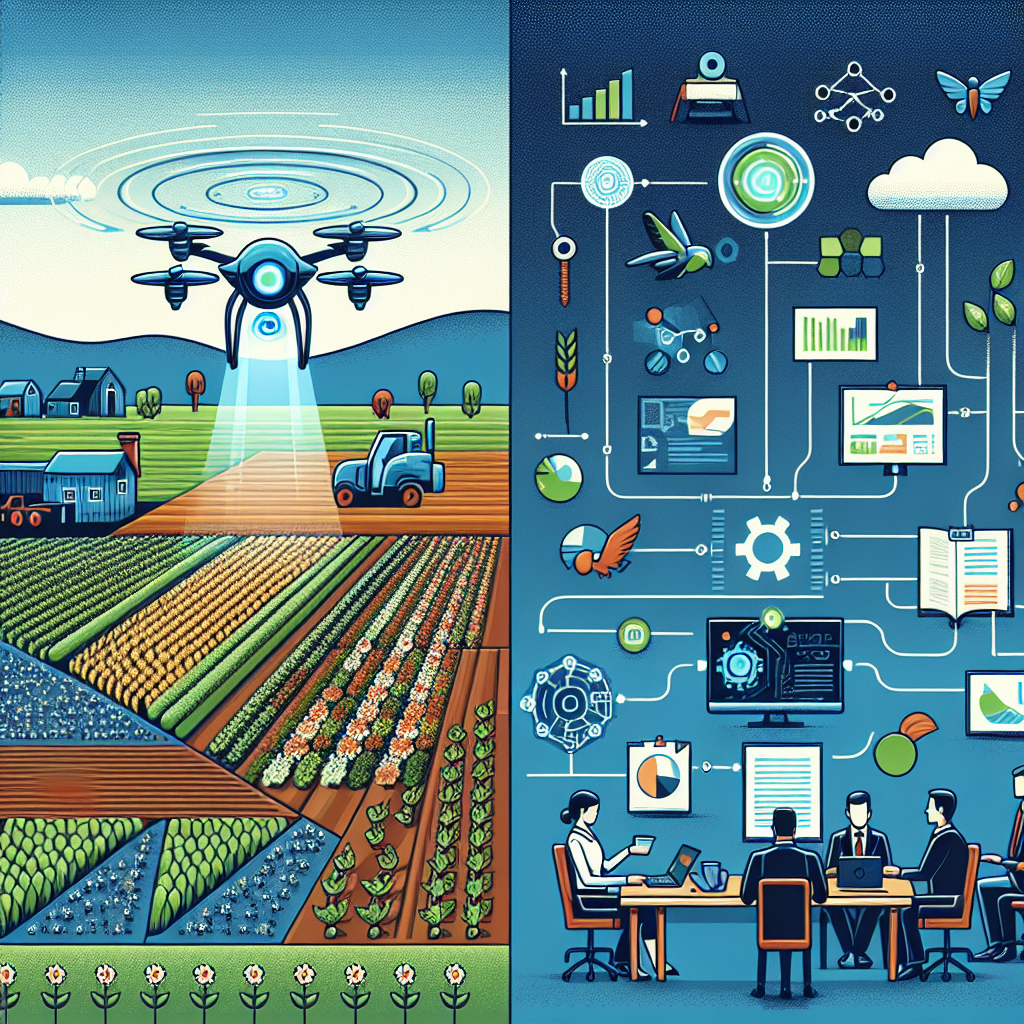Artificial Intelligence (AI) has been revolutionizing various industries, and agriculture is no exception. From precision farming to crop monitoring, AI has the potential to transform the way we approach agricultural policy making. In this article, we will explore the benefits of AI in agricultural policy making and how it can help improve productivity, sustainability, and efficiency in the sector.
1. Precision Farming: AI can help farmers make more data-driven decisions by analyzing large amounts of data collected from sensors, satellite imagery, and other sources. This data can be used to optimize planting schedules, irrigation practices, and pest control measures, leading to higher yields and reduced costs. By using AI-powered tools, policymakers can better understand the needs of farmers and develop policies that promote precision farming practices.
2. Crop Monitoring: AI can also be used to monitor crop health and detect diseases early on. By analyzing images captured by drones or satellites, AI algorithms can identify areas of concern and alert farmers to take action. This real-time monitoring can help farmers prevent crop losses and improve overall productivity. Policymakers can leverage this technology to develop policies that promote sustainable farming practices and better protect crops from diseases and pests.
3. Climate Change Adaptation: With the increasing impacts of climate change on agriculture, policymakers need to develop strategies to help farmers adapt to changing weather patterns. AI can help predict weather patterns and provide recommendations on how to adjust farming practices accordingly. By incorporating AI into agricultural policy making, policymakers can develop climate-smart strategies that help farmers mitigate the impacts of climate change and ensure food security for future generations.
4. Market Analysis: AI can also be used to analyze market trends and predict prices for agricultural commodities. By analyzing historical data and current market conditions, AI algorithms can help farmers and policymakers make informed decisions about when to sell their products and how to maximize profits. This data-driven approach can help policymakers develop policies that support farmers in accessing fair markets and achieving better prices for their products.
5. Resource Optimization: AI can help optimize the use of resources such as water, fertilizers, and pesticides in agriculture. By analyzing data on soil quality, weather conditions, and crop health, AI algorithms can provide recommendations on how to best allocate resources to maximize yields and minimize environmental impacts. Policymakers can use this information to develop policies that promote sustainable farming practices and reduce the use of harmful chemicals in agriculture.
6. Accessibility and Inclusivity: AI can also help make agricultural policy making more accessible and inclusive. By providing real-time data and insights to farmers, policymakers can ensure that all stakeholders have access to the information they need to make informed decisions. This can help bridge the gap between large-scale commercial farmers and smallholder farmers, ensuring that policies are developed with the needs of all farmers in mind.
FAQs:
Q: How can AI help smallholder farmers in developing countries?
A: AI can help smallholder farmers in developing countries by providing them with access to real-time data and insights on weather patterns, market trends, and crop health. This information can help smallholder farmers make informed decisions about when to plant, irrigate, and harvest their crops, leading to higher yields and improved livelihoods.
Q: Is AI expensive to implement in agriculture?
A: While the initial costs of implementing AI in agriculture can be high, the long-term benefits often outweigh the costs. AI can help farmers save money on inputs such as water, fertilizers, and pesticides, leading to higher profits and improved sustainability. Additionally, there are now affordable AI-powered tools and technologies that are accessible to farmers of all scales.
Q: How can policymakers ensure that AI is used ethically in agriculture?
A: Policymakers can ensure that AI is used ethically in agriculture by establishing guidelines and regulations that promote transparency, accountability, and fairness. This includes ensuring that AI algorithms are unbiased and do not discriminate against certain groups of farmers. Policymakers can also work with researchers, industry experts, and farmers to develop ethical frameworks for the use of AI in agriculture.
In conclusion, AI has the potential to revolutionize agricultural policy making by providing policymakers with the tools and insights they need to develop sustainable, efficient, and inclusive policies. By leveraging AI-powered technologies, policymakers can better understand the needs of farmers, optimize resource use, and adapt to changing climate conditions. With the right strategies in place, AI can help transform agriculture into a more resilient and productive sector for the future.

